Related Research Articles
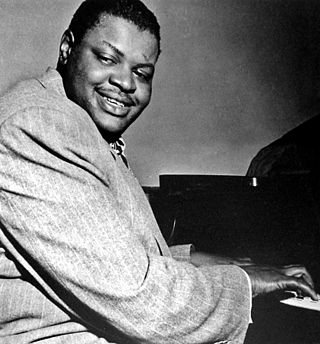
Oscar Emmanuel Peterson was a Canadian virtuoso jazz pianist and composer. Considered one of the greatest jazz pianists of all time, Peterson released more than 200 recordings, won eight Grammy Awards, as well as a lifetime achievement award from the Recording Academy, and received numerous other awards and honours. He played thousands of concerts worldwide in a career lasting more than 60 years. He was called the "Maharaja of the keyboard" by Duke Ellington, simply "O.P." by his friends, and informally in the jazz community as "the King of inside swing".

Mitchell Herbert Ellis was an American jazz guitarist. During the 1950s, he was in a trio with pianist Oscar Peterson.

Edmund Leonard Thigpen was an American jazz drummer, best known for his work with the Oscar Peterson trio from 1959 to 1965. Thigpen also performed with the Billy Taylor trio from 1956 to 1959.
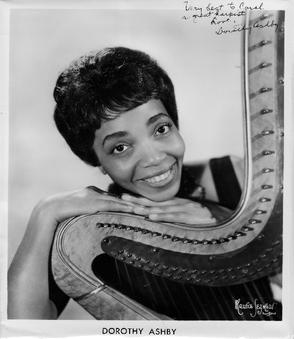
Dorothy Jeanne Thompson, better known as Dorothy Ashby, was an American jazz harpist, singer and composer. Hailed as one of the most "unjustly under loved jazz greats of the 1950s" and the "most accomplished modern jazz harpist," Ashby established the harp as an improvising jazz instrument, beyond earlier use as a novelty or background orchestral instrument, proving the harp could play bebop as adeptly as the instruments commonly associated with jazz, such as the saxophone or piano.
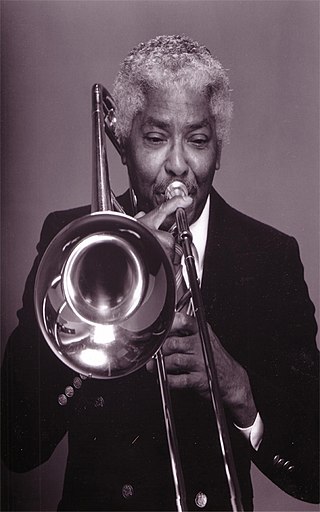
James Milton Cleveland was an American jazz trombonist born in Wartrace, Tennessee.
"How Deep Is the Ocean?" is a popular song written by Irving Berlin in 1932. The song was developed from an earlier Berlin song "To My Mammy" which was sung by Al Jolson in his film Mammy (1930). In the earlier song, the lyrics include the questions "How deep is the ocean? / How high is the sky?" and this was the genesis of "How Deep Is the Ocean?".
"Laura" is a 1945 popular song. The music, composed by David Raksin for the 1944 movie Laura, which starred Gene Tierney and Dana Andrews, is heard frequently in the movie. The film's director, Otto Preminger, had originally wanted to use Duke Ellington's "Sophisticated Lady" as the theme, but Raksin was not convinced that it was suitable. Angered, Preminger gave Raksin one weekend to compose an alternative melody. Raksin later said, and maintained for the rest of his days, that when, over that weekend, his wife sent him a "Dear John" letter, the haunting theme seemed to write itself.
"I Can't Get Started", also known as "I Can't Get Started with You" or "I Can't Get Started (with You)", is a popular song. It was written in 1936 by Vernon Duke (music) and Ira Gershwin (lyrics) and introduced that year in the film Ziegfeld Follies of 1936, where it was performed by Bob Hope and Eve Arden.

Count Basie Meets Oscar Peterson – The Timekeepers is a 1978 album by Oscar Peterson and Count Basie. It was recorded on Frbruary 21-22, 1978.
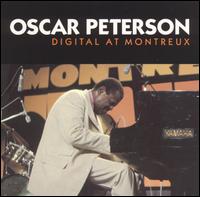
Digital at Montreux is a 1979 live album by Oscar Peterson, accompanied by Niels-Henning Ørsted Pedersen, recorded at the 1979 Montreux Jazz Festival.

"Whispering" is a popular song, first published in 1920 by Sherman, Clay & Co., of San Francisco. The initial 1920 copyright and first publishing attributes the lyrics to Malvin Schonberger and the music to John Schonberger.

The Paris Concert is a 1978 live album by Oscar Peterson accompanied by bassist Niels-Henning Ørsted Pedersen and guitarist Joe Pass.

Time After Time is a 1986 album by Oscar Peterson.

"My Ship" is a popular song written for the 1941 Broadway musical Lady in the Dark, with music by Kurt Weill and lyrics by Ira Gershwin.
"Softly, as in a Morning Sunrise" is a song with music by Sigmund Romberg and lyrics by Oscar Hammerstein II from the 1928 operetta The New Moon. One of the best-known numbers from the show, it is a song of bitterness and yearning for a lost love, sung in the show by Philippe (tenor), the best friend of the hero, Robert Mission (baritone).

Oscar Peterson and the Bassists – Montreux '77 is a 1977 live album by Oscar Peterson.
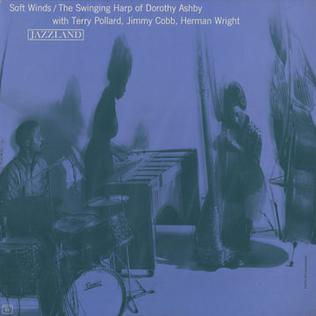
Soft Winds is an album by jazz harpist Dorothy Ashby recorded in 1961 and released on the Jazzland label. The album takes its name from Goodman's 1940 standard "Soft Winds" which features as the first track.
"Django" is a 1954 jazz standard written by John Lewis as a tribute to the Belgian-born jazz guitarist Django Reinhardt. It was a signature composition of the Modern Jazz Quartet, of which Lewis was the pianist and musical director.
References
- ↑ "Soft Winds (1940)". Jazzstandards.com. Retrieved 4 December 2014.
- ↑ Bogdanov, Vladimir; Woodstra, Chris; Erlewine, Stephen Thomas (2002). All Music Guide to Jazz: The Definitive Guide to Jazz Music. Backbeat Books. p. 77. ISBN 978-0-87930-717-2.